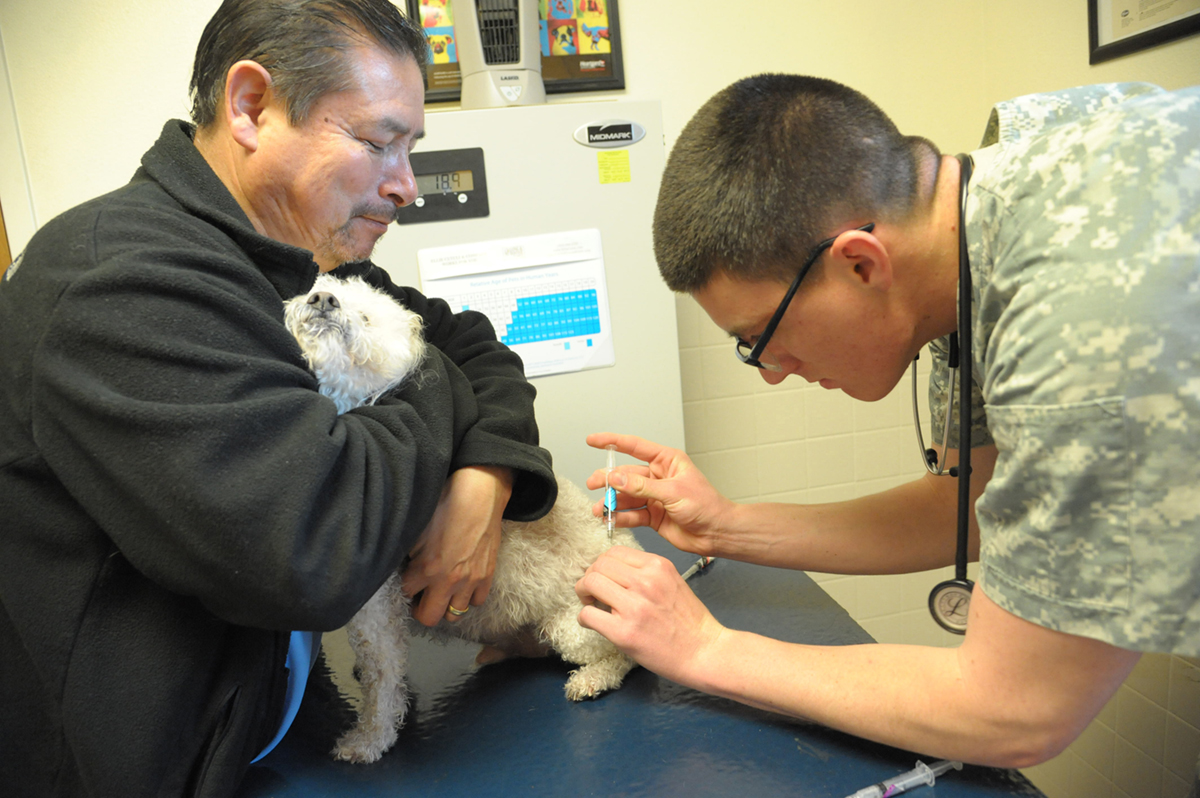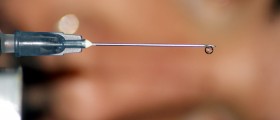
Introduction
Anaphylaxis
Anaphylaxis is a sudden and violent allergic reaction to foreign substances injected into dog. Though rare, it is life-threatening event that can be a result of vaccination. The first symptoms occur within one hour of exposure to allergen. If it doesn’t receive the treatment, affected dog may experience blood pressure drop, breathing trouble, vomiting, seizures, and rapid heart beat. Also, the gums become pale and larynx swells. Eventually, all these symptoms lead to shock, collapse, coma and death. According to Dr. Ronald Schultz, such reaction occurs once in every 15,000 vaccinations.
Anaphylaxis requires immediate veterinarian treatment that includes administered epinephrine within couple of minutes. Also, other medications, oxygen and IV fluids can be given if necessary. Anaphylaxis is commonly associated to vaccines such as rabies, canine coronavirus and leptospirosis. These vaccines contain chemicals and more bacterial and virus particles in single dose, which can lead to anaphylaxis.
If the dog experienced adverse reaction to vaccine in the past, precautions must be taken prior to next vaccination. Before vaccination the dog may be given antihistamines and catheter must be placed to enable administering of fluids and medications in case of reaction. Dog should be observed for some time in veterinarian’s office and later at home for several hours.
Neurological and Eye Disease
Neurologic symptoms are often seen in dogs due to vaccine reaction. This is the most commonly caused by Canine distemper vaccine whilst Measles vaccine rarely leads to such adverse reaction. Puppies under 5 weeks, who were given a modified life vaccine may suffer from Cerebellar disease.
Inflammation of the eye or “blue eye” usually develops as a result of canine adenovirus-1. This reaction is nowadays rare since most vaccines contain canine adenovirus-2.
Pain and Swelling at the Injection Site
Within 30 minutes to 7 days after vaccination there may occur pain, swelling, redness and irritation at the injection site. Sometimes, abscess can also occur because of body’s reaction to the vaccine.
Respiratory Reaction Caused by Intranasal VaccinesSuch reaction is associated to intranasal Bordetella and/or parainfluenza vaccine. The respiratory reaction includes mild cough by which virus in vaccine-form can be spread to other animals. This cough doesn’t require treatment.
Lameness
Lameness is associated to several different vaccines. Immunodeficiencies can be seen in Akitas which makes this breed more susceptible to the adverse reactions. Due to this, Akitas can suffer from progressive immune-mediated arthritis in joints. Hypertropic osteodystrophy can occur in Weimaraners and some other large-breed dogs. This commonly occurs as a result of canine distemper vaccine.
Birth Defects
Pregnant dogs vaccinated with modified live vaccine can deliver puppies with birth defects. These vaccines can also cause abortion. Modified live vaccines shouldn’t be given to puppies under 4-5 weeks because of possible infection and diseases.

















Your thoughts on this
Loading...